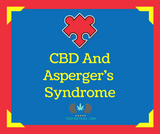Education is so very important, and when your child has a learning disability, it can threaten to get in the way of your child’s future. So you have a decision to make when it comes to how your child is going to go through school. You can homeschool, or you can continue with public school. Which one is the best option for you and your family?
About Learning Disabilities

Learning disabilities are when your child has a difficult time with aspects that affect their learning. This can be behavioral, handwriting, speaking, reading, and other cognitive skills. You may not know if your child has a learning disability, but there are general symptoms that you can look out for.
General Signs Your Child May Have A Learning Disability
Preschool
Difficulty with:
- Pronunciation
- Finding the right words to say
- Making rhymes
- Learning numbers, letters, colors, shapes, or days of the week
- Concentrating
- Interacting with other students
- Following direction or routine
- Controlling pencils, scissors, crayons, buttons, zippers, and typing
Kindergarten Through Fourth Grade
Difficulty with:
- Learning the connection between letters and sounds
- Basic words
- Spelling, reading, letter reversals
- Basic math concepts
- Learning about time
- Learning new skills
- Remembering facts
Fifth Through Eighth Grade
Difficulty with:
- Reading comprehension
- Math skills
- Letter sequence
- Prefixes, suffixes, root words, or spelling strategies
- Organizing their bedroom, school work, or desk
- Keeping up with assignments
- Handwriting
- Time management
- Understanding and expressing thoughts out loud
High School And Beyond
Difficulty with:
- Spelling the same word correctly in a single document
- Reading or writing tasks
- Open-ended questions on tests
- Memory
- Adapting skills from one setting to another
- Work pace
- Grasping abstract concepts
- Focusing on details
- Misreading information
Getting Them Help
If you notice any of these general symptoms, your child may have a learning disability. But to know for sure, you need to get them evaluated. There is more than just one learning disability, and there are tons of ways to adapt to the struggle. A doctor can give them a test to figure out what you need to focus on. They may discover that your child has one of the following disabilities.
Types Of Learning Disorders
Auditory Processing Disorder (ADP)
This disorder is also known as central auditory processing disorder. This disability affects the way that sound travels through the ear and how it is processed or interpreted by the brain. People with this disability may not be able to recognize subtle differences in words or sounds, even when they are loud and clear enough to be heard. They can have a hard time telling where sounds are coming from, making sense of the order of sounds, or have a hard time blocking out background noise.
Dyscalculia
Dyscalculia is when the student has a particularly hard time with math. They may be unable to understand numbers or learn math facts. Math symbols may be hard to comprehend, and they have a hard time memorizing or organizing numbers. Your student may have difficulty telling time or counting as well.
Dysgraphia
Dysgraphia can affect handwriting and motor skills. Their handwriting may continue to be illegible, and they have inconsistent spacing in their writing as well as poor special planning on the paper. Your child may have poor spelling, difficulty composing writing, or have a hard time thinking and writing at the same time.
Dyslexia
Dyslexia is one of the more common and well-known learning disabilities that affect reading and language-based processing skills. It can affect reading fluency, decoding, reading comprehension, recall, writing, and spelling.
Language Processing Disorder
Language processing disorder is a type of auditory processing disorder. It is a form of APD but it relates only to the proves of language as opposed to all sounds. Your child can have a difficult time finding meaning in a group of sounds that make words or sentences as well as affect expressive or receptive language.
Non-Verbal Learning Disabilities
Non-verbal learning disabilities are when your child has higher verbal skills but weaker motor, visual, spatial, and social skills. They can have a hard time interpreting nonverbal cues like body language or facial expressions. Your child may also struggle with poor coordination.
Visual Perceptual/ Visual Motor Deficit
This disability is when your child may have a hard time understanding information that they see. You might notice that they have difficulty copying or drawing. They may miss subtle differences in shapes or letters. They can also have movement issues like using scissors, holding a pencil too tight, or having poor hand-eye coordination.
Other Disorders
There are also mental health issues that your child may have that aren’t considered learning disabilities. But this doesn’t mean that they won’t have a difficult time learning. The following is a list of mental health disorders that can make the classroom challenging.
- Depression
- Anxiety
- PTSD
- Tourette Syndrome
- ADHD or ADD
- Dyspraxia
- Executive Functioning
- OCD
- Autism
Home School Vs. Public School
If your child has a learning disability, you may have considered taking your child out of school and homeschooling them. This can be a very valid option, but it isn’t right for everyone. In order to make a good decision, you need to weigh the pros and cons to see what is right for you and your family.
Public School

Pros
Good Social Environment
When your child goes to school, they are subject to thousands of social opportunities. From school dances to just walking to class, your child can interact with their peers and learn the social skills they need to succeed in the real world.
Educated Teacher
At school, the person in charge of teaching your child has a degree and is well practiced in handling children. Though our teachers may be underappreciated, they work very hard, crazy hours, and put up with a lot to make sure that your student learns the content they need to pass and are fresh on the curriculum.
Access To Extracurricular Activities
When your child goes to school, they have the opportunity to participate in sports, the arts, science clubs, and whatever might interest them. School is like a mall for learning what hobbies you might enjoy, and your child may find a new passion that they never knew they had.
Typically Cheaper
Putting your child in school is typically cheaper than homeschooling. You don’t have to buy the curriculum, textbooks, or programs because the school provides them. If your child is riding the bus, you can even save on transportation.
Built-In Structure
In public schools, they have a built-in structure. Every day, your child has a set of tasks to complete, has lunch the same time every day, and they get the ability to fall into a schedule that satiates their need for routine.
Time Away From Home
Giving your child a chance to go out into the world supervised can give them a sense of independence. While having family time is important for your relationships, having time apart gives them time to figure things out for themselves and may even help make your relationship stronger.
Guidance Counselors
At school, your student has someone they can go to at any time of the day and talk to them about problems they are having in school. They can work with them, and if your school offers it, they can even help them find programs to help them learn how to study or do homework in a way that works best for them.
Cons
Bullies
Unfortunately, children with learning disabilities are more likely to be bullied. And at school, you have to rely on teachers making sure that your child stays safe. Though many schools are starting to have no tolerance policies, we still have a long way to go when it comes to compassion between peers.
Safety Isn’t Up To You
It is no surprise with the recent school shootings that parents are fearful for their children’s safety. When you send your child off to school, you are no longer in control of what happens to them. Schools are starting to beef up security, thankfully, but wouldn’t it be nice if they went back to fire drills instead of shooter drills?
No Control Over Curriculum
Not every parent is thrilled over the subject matter that public schools teach. Many schools are still stuck in the loop of stressing how important test scores are over the actual curriculum. When your child is in a public school, you don’t really have much control over what they learn in school.
Less One On One Time
In public school, your child will be in a classroom with at least twenty other kids. If your child is struggling in school because of their learning disability, they may not get the special attention they need because the teacher needs to tend to the other students as well.
Home School

Pros
No Travel Time
If you take your child to school and pick them up, you can cut this out of your day. You will have more time to spend with your family, help teach your child, or take care of things at home. Not to mention you can save on gas!
Tailored Learning Plans
When your child has a learning disability, they may need to learn things in a different way. When you are the teacher, you can control how they learn and what they learn. You can help them come up with techniques that can help them learn the subject matter easier.
Keep An Eye On Daily Habits
When your kid is off at school, you can’t help them make sure that they are eating healthy, getting enough water, or activity. When you are homeschooling your child, you can make healthy meal plans, help them stay active, and teach them healthy self-care routines.
They May Perform Better
Studies have shown that children who do homeschooling perform better than those in public school. With fewer distractions, tailored lesson plans, and a healthy environment seems to be working. Many students who are homeschooled are actually ahead of their peers that are in public school.
You Can Make Adjustments
Does your child need more time on tests? When you are the teacher, you get to make the rules. You get to make the perfect environment for your child making it easier for them to succeed in their education.
Cons
New Ways To Socialize
When you homeschool, you need to get creative about socializing. Since they aren’t around kids at school, they need to find other outlets to practice their social skills. This could be putting them in ballet, karate, or taking them to science camp.
Balance Teacher And Parent
When you are the teacher and the parent, you might always feel like you’re the bad guy. Balancing the roles between being a parent and a teacher can be difficult. It can be exhausting being a teacher and also taking care of the family and the house. Be sure to remember to practice self-care yourself.
Time Consuming
Teachers spend a good portion of their hours grading papers and making lesson plans. And you have to do this, too. While you can get curriculum packets and booklets, you still have to spend time organizing the day and making sure everything gets done.
Harder On Single Parents
If you are a single parent, this might be very difficult for you. Not only do you have to work, take care of the house, parent your children, now you’re a teacher as well. This can be exhausting for someone who doesn’t have any help.
It’s Up To You
Have a conversation with your doctor and your child to figure out what they think. Have an open conversation between you all to figure out what the best route to take is. You don’t have to keep your child in public school, and you don’t have to pull them out. This decision is all up to you.
Do you have a child with a learning disability? What has worked best for your family? We would love to hear your opinion in the comment section below!














